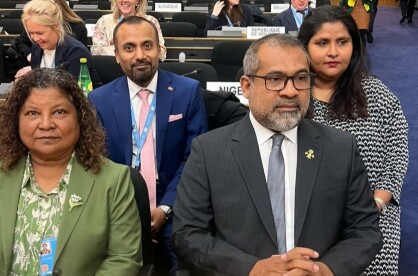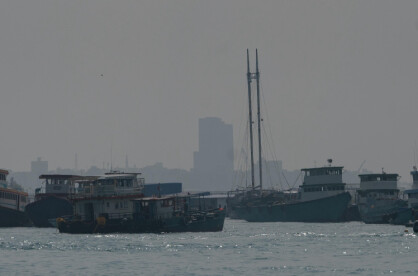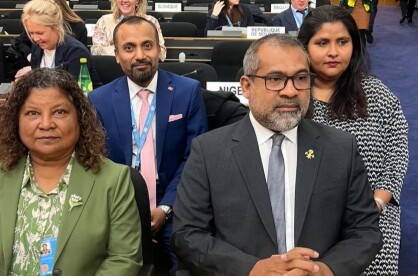With the Presidential elections coming up, political parties and their leaders who are running to become the next President of the Maldives have started publishing and talking about the manifesto. These manifestos highlight the important changes that the political parties want to bring in a Government that is run by them. A lot of the focus on manifestos usually surrounds things that citizens of the nation are seeking to improve such as roads, healthcare, housing and even better pay in workplaces.
When it comes to the point of getting better pay, there is one specific sector that the focus falls and, and that is civil servant employees. While civil servants work for the Government and make sure that the administration runs smoothly, it is no secret that civil servants in the Maldives do not make a huge salary. Even with a university-level degree, a majority of civil servants are only making a few thousand over the minimum wage, oftentimes struggling to pay for monthly bills and rent without working a second job.
With this, one of the main focuses of the current administration since 2022 has been increasing the wages of civil servants. This move has already been taking place in different phases, with the education sector being one of the first to see an increase in salaries. Since then, lecturers as well as people working in the healthcare sector have also witnessed an increase in their salaries.
As these changes were being brought about in different phases, the administration had made it clear from the very start that this initiative aimed to see an increase in salaries across all civil service jobs. While this remains yet to be true, with the elections coming up, the current ruling party Maldives Democratic Party (MDP) has announced that following the elections, if President Ibrahim Mohamed Solih is re-elected, the plans to increase all civil servant salaries by 40 percent will become a reality.
While these promises are exciting, especially for civil servant workers who have been extremely vocal about getting a raise in salaries, there are a few things to consider when we think about the realities of this increase. In addition to the benefits of an increased salary in 2022, another reality that the Maldives was hit with was how much the country was struggling with the increasing debt situation. While the Government has stated its plans to work towards reducing the extreme debt of the nation, the plans to increase the salaries do not align with the plans to work on debt reduction.
The Government salary increment plan spans multiple sectors of the civil service including the police, the army, corrections, customs, the judiciary, civil servant employees, administrative staff of councils and well as Imams and employees of the mosque. Across all sectors mentioned above, the total increment will affect over 38,000 employees, which is going to cost the state over MVR 3.3 billion.
With the previous increases in salaries for the lecturers in the education sector itself, the Government spent MVR 62 million from the state budget to cover the cost. If the Government were to follow through with the salary increments, the Government would see an additional MVR 3.3 billion being spent in addition to the MVR 11 billion that is being spent.
In the real world, these increments would not be an issue as civil servants absolutely deserve a better salary. However, when we look into the real statistics, the Government is already spending MVR 2.7 billion per month on recurrent expenditure including salaries, and according to the statistics from the Finance Ministry of the Maldives, excluding grants, the government receives an average of MVR 2.1 billion as revenue per month. With these statistics, the realities of seeing such a drastic increment in salaries are starting to look extremely bleak as the question remains as to how the country can afford to spend more.
Following the changes that were implemented due to the debt situation in Maldives, the country already saw an increase in taxes with the GST increasing from 6 percent to 8 percent and the TGST increasing from 12 percent to 16 percent.
In addition to this, during the past year, the Government has also issued significant amounts of T-bills in order to cover the extreme budget deficit. While this is the situation that the country is already facing, with such increases there is no doubt that these measures will get even more expensive for citizens to bear the cost of, leading to the question of whether an increase in salary will benefit everyone or if people would just end up paying higher taxes with their higher salaries?







